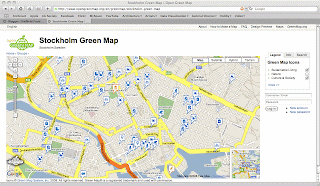Hi all,
These are the minutes from today's meeting between myself, Martin, Rachael and Ben to discuss what we might do to promote ourselves in the Encounters shop...there will be sketches to support these on Monday.
Happy reading!
Sarah
Meeting Minutes 03/10/08Present: Sarah Green, Martin Lydon, Ben Johnson, Rachael Jones
Topic for discussion: Proposal for the wall space in the Encounters Shop
- Martin and Sarah began the meeting by discussing a number of ideas relating to what could be done with the wall space in the Encounters shop. It was suggested that our proposal should be a map of Sheffield that locates people, places and commodities relating to locally sourced produce. One key idea was that visitors to the shop could interact with the map with the use of luggage tags that could be pinned to it to identify places of interest or simply where the visitor had come from.
-These luggage tags could possibly have a question printed on one side with a blank space on the other, where the visitor would write their answer. Possible questions could be ‘Where do you do your weekly shop?’ or ‘What’s your favourite meal?’ or ‘Where are your vegetables from?’ etc. The tags could be picked by the visitor from a ‘lucky dip’ box, perhaps mounted to the wall. These questions would help us to identify visitors’ attitudes towards locally sourced food and the type of food they eat.
- In addition to the tags, a suggestion was made to offer ‘recipe bookmarks’ in return for a visitor’s contribution of the location of e.g. a local greengrocers, a local allotment, a recipe. The bookmarks could help us to promote Grow Sheffield/ Abundance/ our Green Food Map.
- Recipe cards could be given out attached to an apple/ Seeds could be given out along with instructions - ‘a recipe for growing your own vegetables’ etc in return for local knowledge of sustainable food sources. In addition, an email contact or address of a local shop could be included so visitors could track down recipe ingredients for themselves.
- In addition to luggage tags, small flags/ coloured pins etc could be used to locate areas of interest. String could be used to represent a trail - i.e. recipe trail - between points.
- ‘Map of Plenty’ - It was suggested that research be made into what local vegetables/ fruit/ meat/ dairy produce could be sourced in each sub-area in Sheffield, i.e. carrots from
Walkley, eggs from Crookes etc. A collage of fruit/ veg/ eggs etc could be created in
Photoshop for example and be overlaid with a simplified map of Sheffield, so that the produce collage corresponds with respective sources - i.e. the
Walkley area would be set against a background of carrots and so on.
- Small tags with images of local produce printed onto them could be hung on to the map using nails/ hooks, corresponding to the area from which they are sourced. These tags could then be selected by the visitor and stuck to a paper plate to create a ‘meal’ from local ingredients. The visitor would then attach their plate to the shop wall and link it to the map with a piece of string to indicate where they live. They would then be able to take away a fact sheet detailing the source of the ingredients they had chosen, i.e. ‘this apple was grown in Crookes’ etc., so that the ingredients could be obtained and cooked to create the meal in reality.
- A blank ‘wild card’ ingredient tag could be included on the map so that visitors could contribute an item of their own to their ‘meal’ - i.e. something that was not necessarily locally sourced such as marshmallows, etc.
- The Abundance scheme could be tied into the map also, perhaps again with string, and again indicating the source of specific local commodities.


































